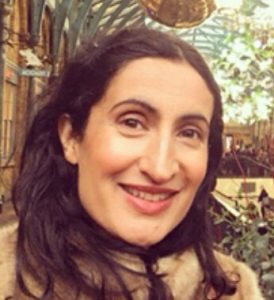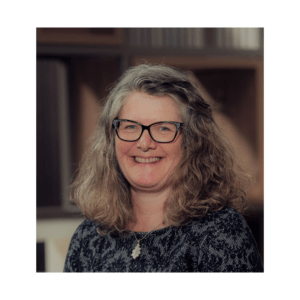Three perspectives on our Integrative Healthcare Forum on Inflammation!
Dr Sumi Chatterjee – GP + Holistic Doctor
Sue Adlam – Holistic Aromatherapist
Maria Hancock – Medical student at the University of Bristol
 Dr Sumi Chatterjee
Dr Sumi Chatterjee
Integrative Medicine (IM) is the ‘new kid on the block’ re-constructing current medical paradigms with curiosity, respecting advances in modern medicine but equally being aware of its limitations, so pertinent in our modern epidemic of chronic ill health and more recently the corona virus pandemic. Social prescribing brings the very philosophy of IM to life but in this digital era of information overwhelm, guiding our patients to safe evidence based resources still remains a challenge.
IM is the intelligent collaboration of the most recent research in conventional, lifestyle, complementary, and traditional whole medical systems such as Ayurveda, Chinese medicine and medical homeopathy, so healthcare is holistic and individualised. The National Centre of IM founded by the visionary Dr Elizabeth Thompson, a palliative care consultant with many years of experience, has enabled the creation of a unified platform integrating all spheres of a holistic medical paradigm addressing the physical, emotional and spiritual elements of our complex human nature encouraging balance, harmony, in essence homeostasis.
The latest Integrative Healthcare Forum on autoimmune disease was fully booked, and showcased research from Rheumatology, Primary care, Functional medicine, Western herbal medicine, Biochemistry, Chinese herbalism, physical activity and aromatherapy. Inflammation is the body’s physiological response to infection and trauma, activating an inflammatory cascade via molecular signal transduction, however when persistent, chronic disease and autoimmunity can manifest. Conventional pharmacology neutralises the downstream consequences of chronic inflammation, but addressing factors upstream that initiate and perpetuate this remains key.
An ‘upstream anti-inflammatory toolkit’ should include nutrition, whole foods, herbs and spices, Omega 3 fatty acids, prebiotic fibre, to nourish the gut microbiome, reducing inflammatory bacterial endotoxins created from modern diets rich in processed trans and saturated fats and carbohydrate. Medicinal mushrooms, and phytochemical agents such as turmeric, ginger, Boswellia, Bromelain, Devil’s claw and Salicin are important adjuncts against inflammation. Reducing stress with mindfulness, physical activity, more sleep and minimising exposure to environmental toxins are also key and the use of anxiolytic aromatherapy oils such as Lavender and Neroli can also be very helpful.
The field of social genomics & psychoneuroimmunology, and how gene expression of inflammation is potentially modulated by our social environment with early childhood experiences becoming biologically embedded and ancestral trauma also contributing to altering our stress susceptibility is another fascinating arena of contemplation, posing the question is illness a biochemical translation of a psycho-emotional truth? The learning curve was steep during the course of the day and I came away more knowledgeable and ready to integrate it into my work and practice.
 Sue Adlam – Holistic Aromatherapist
Sue Adlam – Holistic Aromatherapist
I recently attended my second NCIM Integrative Healthcare Forum – this one on the theme of chronic and autoimmune conditions and it was absolutely fantastic on so many levels. The variety of speakers and presentations was as always, fascinating, educative and wide ranging. Since training as a complementary therapist 7 years ago (aromatherapy and massage), I’ve always been interested in the model of integrative medicine as there is so much that can be gained from using both traditional and modern medicine alongside each other. Much has changed in those seven years and it is now recognised that what works for acute intervention does not work well for chronic health conditions caused by lifestyle. As I myself have an autoimmune condition, I have spent many years researching and reading, including studying naturopathic nutrition which I will complete in 2021. So much of the content was therefore familiar to me and the added dimension of it coming from a medical perspective was useful and elicited much empathy with the dedicated medical professionals who are making shifts from within where there still exists a huge degree of resistance to change. Gives a sense of being in this together.
The atmosphere at these events is totally inclusive and it is just wonderful to be part of this enlightened community of professionals where everyone has something to contribute and these experiences and knowledge are collectively welcomed and valued. The spectacular lunch offering is pretty awesome too and all such great value as part of the ticket price! I will definitely be attending the next one on the 1st May!
Maria Hancock – Medical Student at the University of Bristol
I’ve heard our modern life compared to a fire extinguisher that is set on fire – we dart between a flurry of commitments, desperately trying to fight fires, whilst forgetting that we are burning ourselves. That spiral of chaos is all too familiar as I progress through my medical training. The NCIM’s Clinical Open Day on Inflammation and Autoimmunity was therefore a very welcome arrival – combining some of the field’s best-versed speakers, the latest research and grounding practical advice (not to mention the dynamic duo that is Dr Elizabeth Thompson and Dr Duncan Still keeping the day rolling).
Dr Andrew Morrice began the morning with insight into the effects of long-term stress on the body. A healthy dose of stress has kept us (and our ancestors!) on our toes, reflecting a normal process. But anything taken to the extreme is bound to be damaging. It is therefore no surprise that long-term stress is a key driver for a range of processes which lead to inflammation. This is entirely different to our experiences of short-term inflammation. Long-term inflammation manifests in a variety of conditions, including autoimmune diseases, diabetes and potentially Alzheimer’s disease. Whilst these seem like profound and established conditions, they creep up slowly, and our daily actions influence our ability to prevent them. For example, we may brush aside that extra hour of sleep, not realising the imbalance this causes to the stress hormone cortisol. When the body’s natural diurnal rhythm is lost, cortisol resistance creeps up, and this leads to a rise in inflammatory markers which can lie dormant, ready to erupt into disease.
We were fortunate to hear from Dr Lucie Wilk, speaking of “Our Embodied History”. She explored how trauma can remain resident within the body, and the psychological pain may manifest itself in inflammatory symptoms, such as chronic pain and joint problems. In uncovering the root cause of this pain, the idea of thematic resonance was particularly striking. It taught us to consider the rapport between doctor and patient as a crucial tool in the patient’s recovery. Truly listening is an active skill, and for the patient to hear their story reflected back to them can be a crucial step in the healing process.
We were then swept away by Dr Nina Fuller-Shavel and her Herculean task of covering Functional Medicine in 40 minutes. Through drizzles of warm humour and striking insight alike, we learnt how imbalance in the species of gut bacteria may heighten our risk of inflammatory conditions. By laying out the patient’s story on a timeline, and linking together imbalances in seven core body systems, practitioners can establish the complex drivers of those conditions. She then covered an overview into herbal medicine, and the role of herbs in restoring the immune system back to its original function, rather than shutting it down it as steroids would do. We explored the anti-inflammatory powers of turmeric, and went away knowing to sprinkle black pepper into our turmeric concoctions (for maximum absorption)!
This wouldn’t be an NCIM event without emphasis on the power of food as medicine. As well as Dr Nina’s words of wisdom, we were treated to a talk provocatively titled “Medicinal Mushrooms”. Our spirits were sufficiently energised to join an interactive workshop on physical activity – it’s a commonly held saying that if all the beneficial properties of exercise could be put into a pill, it would be the most popular pill in existence. The day drew to a restful and anti-inflammatory close with an overview of aromatherapy.
As a student, it is both thrilling and bewildering to grow up with two models of Medicine – the conventional model focusing on diagnosis and illness, and a more holistic model focusing on healing and wellness. For every drug I memorise that works to block a symptom, I wonder if we might benefit more from tackling the root cause of the symptom, or even preventing it in the first place. The more I explore the complexities and challenges of this idea, it only creates more branches in the tree of thoughts that grow in my mind. As students, we must be careful to draw the line between remaining respectful to our senior educators’ experience, and starting a paradigm shift around chronic illness.
But for every conflict I encounter, I am filled with a sense of hope for the next generation of medicine. The holistic approach is slowly but surely gaining traction, and it is particularly promising to see this blending into the Bristol medical curriculum. Thanks to the work of Professor Trevor Thompson, we are now taught how to conduct a Lifestyle Consultation as part of a patient’s standard history. It is a privilege to have both models interwoven into our education at such an early stage, and to be able to draw on a wider scope of resources to serve our future patients as individuals. The way we practice Integrative Medicine – with balance and wholeness – reflects the very outcomes we hope to achieve.
We hope you enjoyed reading these three different perspectives of our Integrative Healthcare Forum on Inflammation. If you would like to join us for our next teaching day on Child and Family Health: Creating Vitality, please click here for further information! We have a fantastic inernational line-up of speakers!
